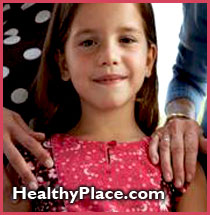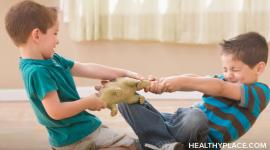Help for Parents of ADD-ADHD Children
Many parents of ADD-ADHD children, at least at first, aren't sure what to do. Dr. Phil and Dr. Frank Lawlis, author of The ADD Answer, provide some helpful suggestions.
In the United States, 17 million children are diagnosed with Attention Deficit Disorder, and oftentimes it is accompanied by hyperactivity. Dr. Phil and Dr. Frank Lawlis, author of The ADD Answer, offer advice for parents whose children are diagnosed with ADD-ADHD.
Educate yourself about ADD.
In his book, Dr. Lawlis explains that an ADD diagnosis is not a sign of inferior intelligence or a handicap. It does not result in a damaged personality, criminal tendencies, or immoral behavior. ADD is not necessarily a learning disability or a mark of mental immaturity, although such conditions can coexist with ADD. Much of the time, the problems of ADD are related to the brain performing at lowered, subdued ranges.
Obtain a proper diagnosis.
 Many times, parents are quick to make evaluations of their children's unruly behavior. "I always look for other reasons, other causation, whenever I see behavior spinning out of control," Dr. Phil explains. The symptoms a child exhibits may be caused by factors such as divorce, death of a parent, or a change in school and living situation.
Many times, parents are quick to make evaluations of their children's unruly behavior. "I always look for other reasons, other causation, whenever I see behavior spinning out of control," Dr. Phil explains. The symptoms a child exhibits may be caused by factors such as divorce, death of a parent, or a change in school and living situation.
There are at least two well-documented ways to determine if your child has a neurologically based disorder of ADD or ADHD: a spectrogram or an EEG can identify specific patterns in certain parts of your child's brain.
Examine your parenting style.
Is the child more difficult with one parent than with the other? It could be that your parenting style is contributing to the problem. Parents need to have a unified front that they both can stand behind and enforce. You must support one another in your actions and discipline. Look at ways that you can change your child's environment, including avoiding fights in front of the kids or reacting to your child differently.
Don't feel guilty about disciplining your child.
Dr. Phil tells one mom whose child suffers from ADHD: "You have to be willing to visit the structure. You have to be willing to bring the predictability, the consistency and the discipline. It's not something you should feel guilty about; you should feel guilty if you don't do it because he needs the structure. He needs the guidance. He needs the order. He needs the rhythm. He needs all of the things that are necessary to give him a chance to have a flow to his life."
Know all the facts before giving your child medication to treat ADD.
Dr. Phil and Dr. Lawlis both agree that we are overmedicating our children. In his book, The ADD Answer, Dr. Lawlis asks, "Are we using drugs to control our children's behavior instead of being responsible parents? When we teach our children at a young age to rely on medications, I fear that we are in danger of creating a generation of pill poppers as a result." Also, medication is only about 50 percent effective, and it decreases in effectiveness from the day your child starts taking them.
Dr. Phil clarifies his views about medication for ADD: "If it's working for you and your children against a backdrop of responsible parenting, then good for you and you shouldn't substitute my judgment or anyone else's for your own."
Monitor your child's diet.
"The brain doesn't necessarily use all the foods we give it in the best way, and actually the rawer the food, the more natural the food, the easier it is for the brain to metabolize it and use it for its use. So when you create a food that's not natural, that's been fried or created with a great deal of heat, it just doesn't work as well," Dr. Lawlis explains.
Consider alternative options.
Children can learn to control their brain activity to the point that it can affect their ADD or ADHD. The symptoms of ADD can be controlled through Biofeedback, computer images and sounds that show what's going on in the brain. (Dr. Lawlis devotes a whole chapter to this in his book, The ADD Answer).
This approach is not an absolute cure for every aspect of ADD. However, it has worked well in helping children learn to control disruptive racing thoughts and impulsive behaviors that impair the ability to focus and concentrate. It offers therapies that help ADD children learn to control basic other reactions, such as heart rate and cardiovascular activity.
next: Coping with Attention Deficit Disorder
~ all articles on children behavioral issues
~ all articles on add, adhd
APA Reference
Staff, H.
(2008, December 21). Help for Parents of ADD-ADHD Children, HealthyPlace. Retrieved
on 2026, January 19 from https://www.healthyplace.com/adhd/children-behavioral-issues/help-for-parents-of-add-adhd-children



